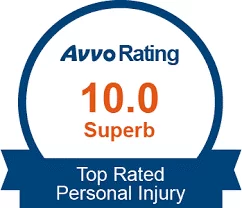Do I Have an Injury Claim

What Constitutes a Personal Injury Claim?
Parties who’ve been injured during an accident have the right to financial compensation. While every case is different, a variety of factors can award assistance to those in need. It’s important to talk to your provider about compensation beforehand, but rest assured: A personal injury plan can be constituted by several things, and each is easily targeted.
To determine whether you have the right to a personal injury claim, consider the following topics and review these compensation guidelines.
Be sure to check out our Ultimate list of personal injury questions for even more answers!
One: Physical Injury
Those who’ve been injured, first and foremost, have the right to a personal injury claim. That said, not everyone involved in an accident is injured. To seek damage repayment, you’ll need to prove your injuries. Rather than what could have happened, what did happen will be considered. Physical injuries are considered, but several mental injuries may qualify for damage repayment funds. If you’ve suffered physical damage from an accident, you likely have the potential to file for a personal injury claim.
Two: Time Since the Accident
If you want to take legal action against parties responsible for your injuries, you’ll need to adhere to a few statute of limitations guidelines. Personal injury victims in Atlanta have a certain amount of time before responsible parties are relieved of their responsibilities. If you don’t file for a personal injury claim within this timeframe, you might lose any chance of compensation. In general, personal injury victims have two years to file from the date of accident. As with physical injury qualifiers, several exceptions exist. Don’t hesitate to talk to your provider. Discuss the exceptions with them, and talk about possible late filing options, if applicable.

Three: Medical Payments
Next, you’ll need to prove your own financial loss due to personal injury. Did you require hospital treatment? What about personal medication? In many cases, personal injury victims need to prove their loss of personal finances to land a personal injury claim. Your claim needs to be supported with evidence. Aside from your personal injury testimony, proof of fiscal loss is your best tool.
You can prove the history of your related medical treatments by providing hospital records. Similarly, you can offer evidence of missed work. Witness statements, too, can be used. It’s a good idea to seek medical attention as soon as possible. Waiting can reduce your ability to receive compensation. If your injuries worsen over time—or, if they require less to fix—your negligence will become a factor.
Any injuries cared for over time are similarly covered. In many cases, your legal provider can determine a total amount of finances lost due to personal injury. Injuries take time to heal, and medical providers require time to completely assess injuries. Sometimes, a victim can receive personal injury compensation to cover for future costs. If your medical treatments are extended or shortened, the compensation will match it.
Four: Negligence
As stated above, your medical negligence can impact your compensation. The other party’s negligence, however, is a bigger factor. You’ll need to determine the other party’s responsibility in the accident before landing a personal injury claim. Even if they weren’t directly responsible, they can still be at fault.
Determining negligence can be difficult. In fact, injured parties are frequently negligent themselves to a degree. Upon determining the accident’s at-fault party, your legal provider will measure recovery compensation according to the situation’s causing factors. In Georgia, contributory negligence exists. You can seek damage compensation if you’re less than 50 percent responsible for the accident. Your overall compensation, however, will be reduced by your contribution.
“I became an attorney to be a voice for the voiceless. As a former felony prosecutor, I believe that there is no fight that is too small or too big to fight when seeking justice for my clients.”
How Does Income Affect Your Claim?
Once you’ve determined the ability to file a claim, you should determine other factors which might affect it. First, consider your income. You might be entitled to accident compensation if your wages or salary have been negatively impacted. This accounts for future income, as ongoing injuries can detract from your work success. In personal injury cases, award damages are based upon one’s “loss of earning capacity.”
Does Emotional Distress Increase Rewards?
As stated earlier, personal injury cases are normally determined by physical damages. Emotional damages, however, can become a factor. Usually linked to serious accidents, emotional distress damages compensate a victim for the psychological impact of injury. Normally, these psychological impacts include anxiety, sleep loss and fear. In Georgia, emotional distress can be equated to “pain and suffering.”
How is Negligence Determined?
If you’re considered to be at fault in the accident—to any degree—you’ll lose part of your compensation. Negligence is determined by several factors, however, and each may apply to your case differently. Not all accidents are similar, nor are negligence causes.
Contributory Negligence
In a personal injury lawsuit, contributory negligence is the baseline of negligence. It’s your physical contribution to an accident, and it can directly impact your ability to recover compensation,
After-Accident Negligence
To a degree, you’re expected to take several steps to mitigate the accident’s financial impact. Even if the accident wasn’t your fault, you can still commit negligence after an accident. If you fail to get necessary medical treatment after an accident, or if you’ve allowed your injuries to get worse, your compensation may lower considerably.
Comparative Negligence
If you’re partially at fault, your legal provider will compare your negligence to the other party’s. Many personal injury cases are settled like this, especially when dealing with automobile accidents.
Vicarious Liability Negligence
There’s a chance you might’ve been responsible for another person’s injuries. If, for example, your child wasn’t buckled in properly—and they were injured as a result—you may lose compensation due to being negligent.
Schedule a case review
Professional Associations

Required Field*
![]() Your Information Is Safe With Us
Your Information Is Safe With Us
We respect your privacy. The information you provide will be used to answer your question
or to schedule an appointment if requested.
Recent Posts
5 Common Injuries from a Scooter Crash in Atlanta
Atlanta’s streets have seen a surge in popularity of e-scooters. These zippy little vehicles offer a convenient…
What to Expect Legally After a Georgia Truck Accident
Truck accidents, unfortunately, occur all too frequently, leaving a trail of devastation in their wake. These incidents…
What Are the Three Main Categories of Distracted Driving in Georgia?
Every day, Georgia’s roads witness a silent crisis that claims an average of five lives. Though the…





